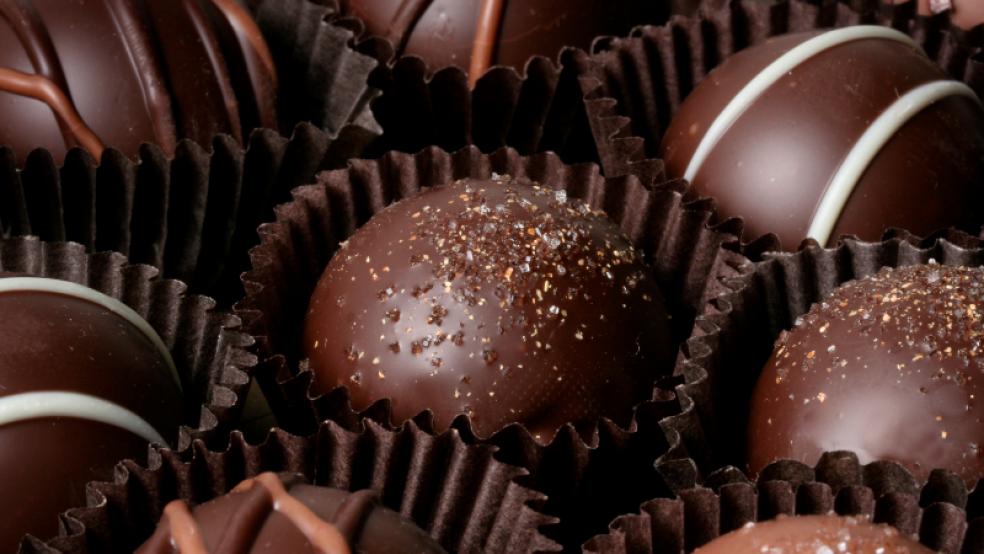As cocoa prices surge to near-record highs on demand for emerging markets, chocoholics brace for a hike in price – and maybe even a different taste, as chocolate makers hunt out cheaper ingredients.
Cocoa futures are up 10 percent so far this year, hitting almost £1,900 on ($3,195) a ton in March. Last year prices rose 20 percent.
This growth has been driven by demand from emerging markets, with consumption of the sweet treat in China tripling over the last 4 years. The price rise could lead to chocolate becoming more of a high-end luxury item, according to Edward George, head of soft commodities at Ecobank.
Related: Eat All the Fried Chicken You Want!
George said that while consumption in China is relatively small compared to Europe - even after the surge in demand - more and more cocoa is being ground in South East Asia and India. Cocoa beans are ground – or processed – into a thick paste that contains cocoa butter.
"If prices go up too much (chocolate makers) shift to substitutes and instead of cocoa butter, which gives that melt-in-the-mouth flavour, you can use palm oil, or even cotton seed oil," he said. "There are limitations of course. If you put in too much substitutes, you are not allowed to call it chocolate."
Chocolate prices in the past have remained relatively stable, he said, because price points are fixed for consumers.
"Going forward it could be that chocolate becomes, in Europe, a bit like Champagne. Something which is a luxury, but not all of us can afford," George said.
Weather conditions and currency moves have also hit the price of cocoa, and both are likely to add to cocoa's price in the run up to next season, which starts in October. Drier weather expected in West Africa, where around 70 percent of the world's cocoa is grown, is expected to have a huge impact on production.
Related: 3 Foods You Should Never Eat in 2014
"If that happens we are going to see prices shoot up. The interesting thing is that although grinding in going down in Europe at the moment, it is really shooting up in Indonesia, which is now a net importer of cocoa," he said.
The sterling/dollar exchange rate also affects the price of the crop, as cocoa is primarily traded in dollars, but the price is quoted in pounds on the London exchange. As such, a stronger pound makes cocoa more expensive to buy.
Sterling hit a five-and-a-half-year high against the dollar on Thursday, as investors continued to price in a U.K. interest-rate hike in the first quarter of next year, after strong jobs and wage-growth data on Wednesday.
Head of European G10 FX Strategy at Bank of America Merrill Lynch Global Research, Thanos Vamvakidis, said he expects sterling to strengthen against the dollar further this year.
This article originally appeared in CNBC.
Read more from CNBC:
What a coffee bull market means for your latte
Higher food prices: The next headache for EMs?
Alcohol firms drown sorrows as shares tumble




